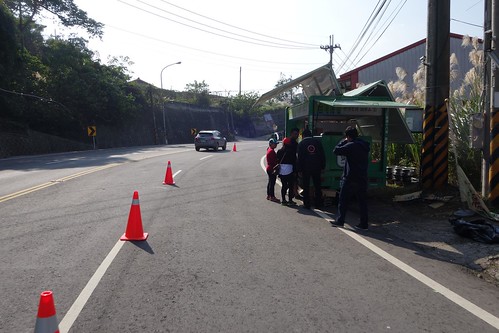As this blog slowly returns to normal after the election crush, I'd like to observe that today is Dec 10, Human Rights Day, and the anniversary of the Kaohsiung Incident in 1979, a watershed moment in the history of Taiwan. The leaders of the democracy movement in Taiwan, including current K-town mayor Chen Chu, were arrested and imprisoned, and they and the lawyers who defended them, including Su Tseng-chang and Chen Shui-bian, gained lasting fame, becoming stalwarts of the DPP. In honor of their sacrifices, I present this analysis of the 2014 election from "expert" Robert Ross back in 2006 (my blogpost): Taiwan's Fading Independence Movement..
The demise of Taiwan's independence movement has removed the only conceivable source of war between the United States and China. The two countries will continue to improve their military capabilities and compete for influence in eastern Asia, but as the threat of war over Taiwan recedes, they may moderate their defense policies toward each other.Don Rogers, a longtime researcher on Taiwan, surveyed 941 college students in 2010. He recently put the data up on the China Policy Institute Blog. Read the whole thing, but here is an excerpt:
First, it is clear that the students do not believe that Taiwan is part of China. Over 80% of the respondents disagreed with the statement, “Although China and Taiwan have different governments they are still part of the same country.” Additionally, nearly 70% of the respondents agree with the statement, “Taiwan and China are so different that it doesn’t make any sense to discuss unification.” Even students who claimed a dual Taiwanese-Chinese identity made it clear that this does not mean they support unification. More specifically, 91% of the students who expressed this dual identity agreed with the statement, “to say that I am Chinese does not mean that I want to be part of the country of China.” All of these responses provide a very clear indication of the students’ primary identity and attitudes toward unification.It's hard to imagine that anyone in 2006 could write that the Taiwan independence movement was dead, but there it is. Ross published the piece in Foreign Affairs, which, as I've remarked before, would publish a paper by a hamster, provided it was sufficiently anti-Taiwan.
Even more comical, in its way, is his assertion that Taiwan independence was the "only conceivable source of war between the United States and China"....
_____________
Daily Links:
- Ben Goren absolutely rips the "The election-will-increase-tensions crowd."
- Repatriation of funds from businesses in China reaches a record high, a fraction of Taiwanese investment. Of course investment in China rose by another $5 billion US, another glorious ECFA success.
- Lovely pics of Taipei temples
- A month of labor demonstrations in Taiwan.
- Friday cold air mass from arctic moving in, dropping temps. Prepare!
- WSJ with piece on Taiwan, divided over trade with China. Lots of numbers. If American elites hadn't wrecked our middle class, the US could rain middle class cash down on Taiwan. Taiwan has fewer good choices because the US middle class has been killed... hence, the need of China.
- Japan Times with sensible commentary on the election. Jamestown China Brief's commentary.
[Taiwan] Don't miss the comments below! And check out my blog and its sidebars for events, links to previous posts and picture posts, and scores of links to other Taiwan blogs and forums!

No comments:
Post a Comment